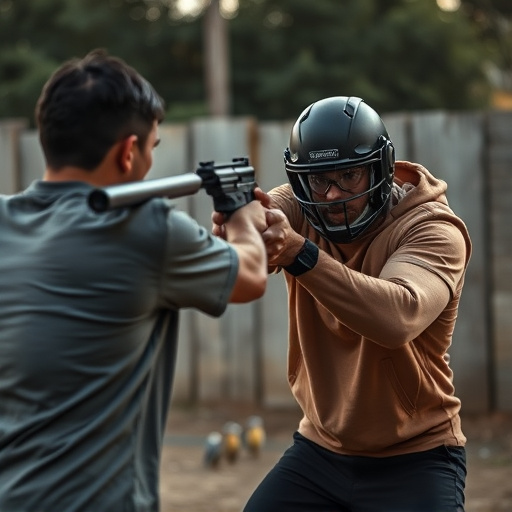Understanding state laws regarding heavy-duty stun batons for security is vital before ownership. U.S. states have varying regulations on possession, use, and storage, with some requiring permits or specific training, while others limit access to law enforcement. Responsible ownership mandates knowledge of local laws to avoid legal issues and ensure these tools are used appropriately for personal safety.
“Unraveling the laws surrounding civilian tasers (stun guns) is crucial for those seeking personal security. This article guides you through the intricate web of state regulations, ensuring you understand your rights and responsibilities. From eligibility criteria to heavy-duty taser purchase advice, we cover all aspects. Learn about safety measures and legal considerations when owning stun weapons, especially heavy-duty stun batons designed for enhanced security. Stay informed and be prepared.”
- Understanding State Laws on Stun Guns
- Eligibility Requirements for Ownership
- Heavy-Duty Taser Purchase Guidelines
- Legal Implications and Safety Measures
Understanding State Laws on Stun Guns

Understanding state laws regarding stun guns, such as heavy-duty stun batons for security, is crucial before considering ownership. Each U.S. state has its own set of regulations dictating who can possess and under what circumstances these devices can be used. Some states allow open carry with minimal restrictions, while others mandate a permit or require the device to be stored in a secure location. It’s essential for prospective owners to familiarize themselves with local laws to ensure compliance and avoid potential legal issues.
State laws often differentiate between stun guns and other self-defense tools, outlining specific rules for each. Understanding these distinctions is vital when navigating ownership requirements. Additionally, some states have provisions for “stand your ground” or self-defense rights, which may impact how and when a stun gun can be employed legally. Staying informed about these legal aspects ensures responsible ownership and promotes public safety.
Eligibility Requirements for Ownership

In many states, civilian ownership of a taser is regulated and comes with specific eligibility requirements. Typically, individuals looking to purchase a taser for personal security or home defense must meet certain criteria to ensure responsible use. These requirements often include being at least 21 years old, having no significant criminal record, and undergoing comprehensive training in the safe handling and deployment of the device. Some states also mandate proof of completion of a certified self-defense course or proficiency in martial arts.
The need for these eligibility standards is driven by the power and potential risks associated with heavy-duty stun batons. With proper training and adherence to local laws, responsible citizens can leverage these tools as a last resort for self-defense, enhancing their personal safety without unnecessarily endangering others or facing legal repercussions.
Heavy-Duty Taser Purchase Guidelines

Many states have specific regulations regarding the purchase and ownership of heavy-duty stun batons, often referred to as Tasers. These powerful personal defense tools are designed for security purposes and can deliver a strong electric shock, temporarily incapacitating a threat. However, due to their potential for misuse and the associated risks, there are strict guidelines in place.
The requirements typically involve background checks, age restrictions, and training mandates. Some states only allow law enforcement agencies or authorized individuals to possess heavy-duty Tasers, while others may permit civilian ownership under certain conditions. Purchasing these devices often involves a thorough check of local laws to ensure compliance, especially when considering their use for personal security or as part of a private security detail.
Legal Implications and Safety Measures

The legal implications surrounding civilian ownership of tasers, or heavy-duty stun batons for security, vary greatly across state laws in the US. While some states allow individuals to possess these devices with minimal restrictions, others have stringent requirements. Potential owners must understand that carrying a taser is not just about personal safety; it also comes with significant legal responsibilities. Misuse or inappropriate deployment can lead to severe consequences, including charges of assault or even aggravated assault.
Safety measures are paramount when considering stun baton ownership. Responsible users should undergo comprehensive training in proper usage and de-escalation techniques. Moreover, keeping detailed records of every taser deployment situation is crucial for legal defense and personal accountability. In today’s world, where self-defense options are diverse, understanding state laws and practicing responsible ownership is essential to ensuring the tool serves its intended purpose without causing unintended harm.
In conclusion, understanding your state’s laws regarding civilian taser ownership is paramount before considering a purchase. While heavy-duty stun bats can serve as powerful tools for personal security, adhering to eligibility requirements and safety measures is crucial. By navigating these regulations, responsible individuals can ensure their rights while safeguarding communities from misuse.
